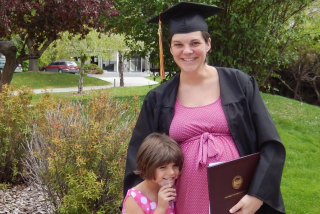‘Longitude’ Looks Good but Veers Off Course
Rarely has a television story been at once so handsome and so botched in the telling as “Longitude,” a British production running four hours on A&E; about the scientific search for a method to determine position at sea. In addition, this 18th century tale of greed, politics, navigation and clock-making ticks on interminably.
It’s based on “Longitude: The True Story of a Lone Genius Who Solved the Greatest Scientific Problem of His Time,” Dava Sobel’s book about the near lifelong quest of John Harrison--a carpenter, clockmaker and mechanical genius--to discover, perfect and gain acceptance for a reliable means of measuring longitude at sea.
Without one, many ships were losing their way and either getting attacked by pirates or sinking with their crews, a situation so critical that the British Parliament offered a prize (several million dollars in today’s currency) to anyone coming up with a method of accurately determining longitude. Along with the visionary Harrison, the offer attracted many cranks.
Played here persuasively by Michael Gambon, Harrison is fascinating, as are his meticulous labors and years of titanic struggle against a rigid scientific community that resists his invention of a clock that carries true time globally, mainly because he is an outsider. “I would not like to see the longitude prize stolen by a country toolmaker,” sniffs one bureaucrat.
Give Sobel credit for somehow turning into a terrific read a story whose basis is an oceangoing chronometer. And her account of this plain-speaking scientist’s Homeric odyssey transfers lushly to the small screen in a production rich in historical detail. That includes the dark, cramped, putrid conditions at sea when Harrison puts his marine timepiece to the test and nothing--neither his clock nor his stomach--goes smoothly for him on his maiden voyage. Later he’s assisted by his son, William (Ian Hart).
The Harrisons’ nemesis and main rival turns out to be Nevil Maskelyne (Samuel West), an ambitious and ruthless astronomer whose wacky “lunar” solution to the longitude dilemma gains support in high places. This intense competition drives much of the story.
*
If only director Charles Sturridge were as skilled with his teleplay as Harrison was with his tools. He isn’t, for “Longitude” repeatedly runs aground because of Sturridge’s awkward elevation to prominence of a contemporary figure about whom Sobel allots less than three pages in her account. He’s Rupert Gould (Jeremy Irons), a former World War I British naval officer whose own preoccupation with marine chronometers 200 years later becomes an intrusive parallel story of obsession in “Longitude,” as if John Harrison needed a 20th century surrogate to hold viewers.
That device largely succeeded in a previous Irons movie, “The French Lieutenant’s Woman,” but not here, creating a centrifugal force away from what should be the main story--Harrison. Just when Harrison’s account is especially interesting, off we go, again and again, on a tour of Gould’s private life that includes a failed marriage, mental collapses and a fling with a nurse late in life. Talk about superfluous.
Meanwhile, Irons, a capable actor with the loveliest voice on the planet, is mired in yet another hang-dog role, this one extending “Longitude” artificially.
*
* “Longitude” is broadcast Sunday night at 8 on A&E.; The network has rated it TV-PG (may be unsuitable for young children).
More to Read
Sign up for our Book Club newsletter
Get the latest news, events and more from the Los Angeles Times Book Club, and help us get L.A. reading and talking.
You may occasionally receive promotional content from the Los Angeles Times.




